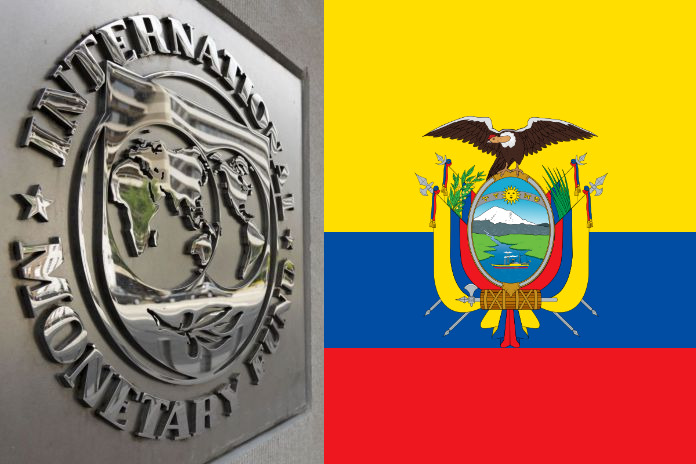By IMF Communications Department
- IMF staff and the Ecuadorian authorities have reached a staff-level agreement on economic policies to conclude the combined fourth and fifth reviews of the 27-month EFF-supported program. Upon completion of the reviews, Ecuador would have access to financing for about US$1 billion, which the authorities would use for the budget.
- The successful vaccination of over 80 percent of the population and the responsible management of public finances are supporting economic stabilization, notwithstanding external shocks from the war in Ukraine.
- The Ecuadorian authorities remain highly committed to the objectives of the IMF-supported program to stabilize the economy, ensure fiscal and debt sustainability, expand the coverage of social assistance programs to protect the vulnerable, promote a transparent management of public resources, and to lay foundations for jobs-rich growth.
USA / ECUADOR – An International Monetary Fund (IMF) mission led by Ceyda Oner conducted in-person and virtual meetings with the Ecuadorian authorities during March 4–May 9 to discuss policies to complete the fourth and fifth reviews under the Extended Fund Facility (EFF) arrangement.
Oner issued the following statement in Washington, DC at the conclusion of those meetings:
“The IMF team and the Ecuadorian authorities have reached a staff-level agreement on the combined fourth and fifth reviews of Ecuador’s economic program supported by a 27-month EFF arrangement. The agreement is subject to the approval of the IMF Executive Board, contingent on the implementation by the authorities of prior actions and fulfillment of all relevant Fund policies. Upon completion of the reviews, Ecuador would have access to about US$1 billion (equivalent to SDR 710 million).
“The fiscal and monetary balances for September and December 2021 were better than projected at the time of the last review and all quantitative program criteria were met except for the one on the central government balance, which was missed due to data corrections on the central government’s pension and healthcare transfer obligations to the social security (IESS). The Ecuadorian authorities remain highly committed to implement their economic program backed by the IMF to continue supporting Ecuador’s recovery from the pandemic, expand social assistance to protect Ecuador’s vulnerable families, promote a transparent management of public resources, restore fiscal sustainability with equity, and promote sustainable growth with high quality jobs.
“We commend the speed with which vaccines have been obtained and administered to over 80 percent of the population so far. These efforts have helped Ecuadorian families and businesses recover decisively from the pandemic and allowed sustained reopening of the economy.
“The spillovers from the war in Ukraine are expected to somewhat dampen growth in the short-term. The economy is projected to expand by about 3 percent in 2022, and 2¾ percent in 2023 and over the medium term, with significant uncertainty regarding the future path of the pandemic, the war in Ukraine, and global oil prices.
“Progress on implementing structural reforms has been mixed. The authorities successfully passed an important and progressive tax reform in November 2021. They published a methodology and templates for estimating and reporting of domestic arrears by public sector entities and established the National Fiscal Coordination Committee (NFCC). Despite some progress, the initiation of independent audits of the financial statements of Petroecuador and Petroamazonas, the state-owned oil companies, and the issuance of procurement guidelines have been delayed. Fast progress on these will be essential for the completion of the combined reviews.
“While the authorities are working hard to improve the timeliness, reliability, and consistency of fiscal statistics, further progress is needed. Correcting data on the central government’s pension and healthcare transfer obligations to IESS, and starting to take actions to ensure that future obligations are fully accounted for in a timely manner will be important to strengthen the transparency of fiscal statistics.
“Going forward, the authorities are committed to continue improving public financial management, enhancing transparency in the management of public resources, and advancing the anti-corruption agenda, which would strengthen confidence in public institutions and boost private sector activity.
“The mission met with minister of economy and finance Cueva, ministers of government Vela and Jimenez, minister of production and trade prado, minister of labor Donoso, general manager of the Central Bank of Ecuador Avellan, members of the Monetary and the Financial Stability Boards, other senior government officials, private sector participants, and civil society. We thank the Ecuadorian authorities for the candid and constructive discussions.”





